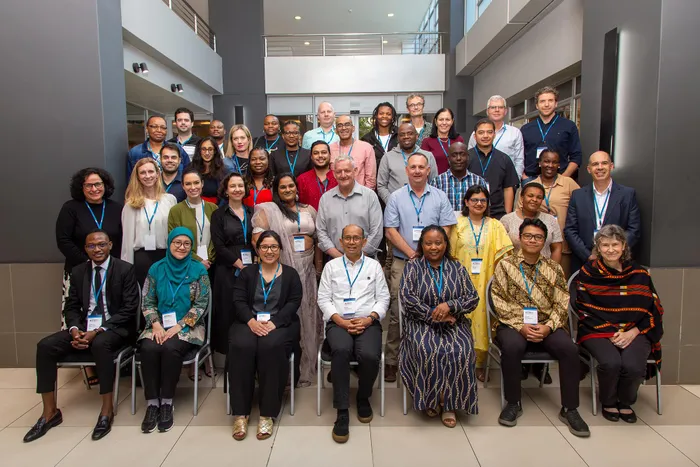
The study team at the inaugural investigators’ meeting held in Durban.
Image: Supplied
KwaZulu-Natal and West Java, Indonesia are set to be the focal points of a pioneering international study that could revolutionise the global approach to tuberculosis (TB).
Commencing on October 23, the research project, titled the 'Asymptomatic TB Transmission in Indonesia and South Africa (ATTIS)' study, aims to uncover whether individuals with tuberculosis who exhibit no symptoms are capable of unknowingly spreading the disease to others.
As two of the World Health Organization's regions most impacted by TB, South Africa and Indonesia face immense challenges in combating this infectious disease. In South Africa alone, TB remains a leading cause of death, with the complexities surrounding asymptomatic TB complicating efforts to curb its transmission. Emerging evidence suggests that a staggering half of all people with active TB may unknowingly harbour the disease without any visible symptoms.
Such individuals may carry the Mycobacterium tuberculosis complex bacteria in their lungs, remaining oblivious to the potential risks they pose to others.“TB is often thought of as a disease that makes people very sick, with symptoms such as persistent cough and weight loss,” said Professor Limakatso Lebina, director for clinical trials at the Africa Health Research Institute (AHRI).
“But we know about half of people with TB don’t feel ill at all. If we can understand if they are still passing the infection on, and at what rates, that will be a game-changer for TB control globally.”
To shed light on these pressing questions, the ATTIS study will recruit 90 000 adult volunteers from households with children across both regions. Participants will undergo comprehensive community-based TB screening — including chest X-rays — while children will be assessed for immune responses to the TB-causing bacteria.
This vital research will enable the team to ascertain if asymptomatic TB among adults contributes to transmission dynamics within family units.Co-led by a distinguished group of experts from AHRI and Padjadjaran University, including Professors Lebina, Emily Wong, and Bachti Alisjahbana, the ATTIS initiative is jointly funded by Wellcome and the Gates Foundation to the tune of $19.5 million (R340 million) over a three-year period.
This investment underscores the urgent need for answers in the fight against TB.“Currently TB is detected when people seek care at clinics and hospitals when they feel sick,” added Professor Wong. “If the ATTIS study shows that people who feel well have infectious asymptomatic TB, then we might have to flip the paradigm of global TB control away from clinics and screen people in their communities.”
The study will also incorporate innovative diagnostics, including breath testing and biobanking of blood samples, to facilitate advanced research into early detection methods for asymptomatic TB. Such innovative approaches promise to deepen our understanding of the disease and propel advancements in TB care.
Explaining the significance of this multinational collaboration, Professor Alisjahbana stated, “This collaboration between Indonesia and South Africa brings together two of the countries whose populations are most affected by TB, each with world-class research capacity. By working across continents, we can generate stronger evidence, compare findings across different settings, and build a shared foundation for global TB control.”cap: Professor Limakatso Lebina (AHRI director for clinical trials), Professor Emily Wong (AHRI faculty member), and Professor Bachti Alisjahbana (chair of the Research Centre for Care and Control of Infectious Diseases at the University of Padjadjaran) are leading a study to determine if people with tuberculosis who exhibit no symptoms can spread the disease to others.